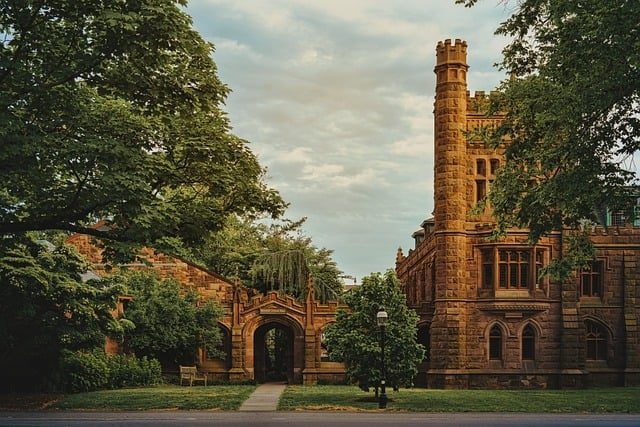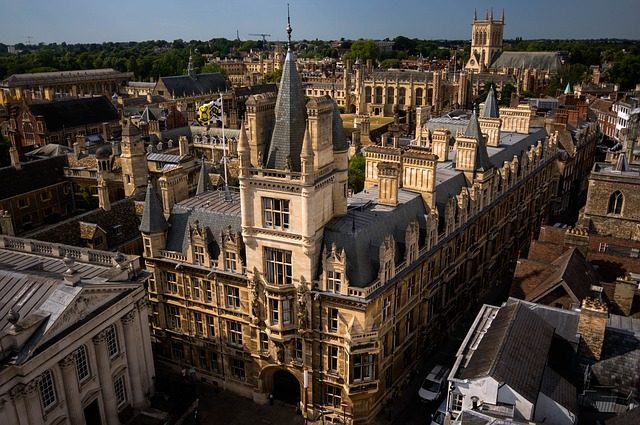Choosing a college is one of the most important decisions a student can make, and understanding graduation rates is crucial in this process. Colleges and universities with highest graduation rates often reflect institutions that provide solid support systems and resources for their students.
In this article, we will explore the top colleges with the highest graduation rates in 2024, offering valuable insights for prospective students and their families.
Table of Contents
These Are the Colleges with the Highest Graduation Rates in 2024
The landscape of higher education is increasingly competitive, and graduation rates serve as a vital indicator of institutional effectiveness. In 2024, the following colleges lead the pack:
- Princeton University: 98.8%
- Harvard University: 98.3%
- Allen College: 97.8%
- Yale University: 97.0%
- Stanford University: 95.3%
These institutions not only boast impressive graduation rates but also provide robust student support systems, which are essential for ensuring students complete their degrees successfully.
What Are the Colleges and Universities with Highest Graduation Rates?
Colleges and universities with high graduation rates typically offer a variety of academic resources, personalized advising, and extracurricular activities that foster student engagement and success. For instance, many of these institutions emphasize mentorship programs and career services that assist students in navigating their academic paths.
Additionally, the social environment at these colleges often encourages collaboration and peer support, which can significantly enhance the learning experience. This aspect is particularly vital for first-generation college students who may face unique challenges.
How Are Graduation Rates Calculated in Higher Education?
Graduation rates are calculated based on the percentage of students who complete their degree programs within a specified time frame, usually 150% of the program’s standard duration. This means that for a four-year degree, the graduation rate reflects those who graduate within six years.

Institutions are required to report these statistics under the Student Right to Know Act, which aims to provide transparency regarding student outcomes. The calculation focuses on first-time, full-time undergraduate students, offering a clearer picture of institutional performance.
What Factors Affect Graduation Rates in Colleges?
Several factors influence graduation rates, including:
- Student Support Services: Access to tutoring, counseling, and academic advising significantly impacts student retention.
- Financial Aid: Availability of scholarships and grants can alleviate financial burdens, enabling more students to complete their degrees.
- Academic Environment: A collaborative and engaging academic culture fosters a greater sense of community and belonging among students.
- Demographics: The background of students, including socioeconomic status and first-generation status, can affect graduation likelihood.
Understanding these factors can help prospective students make informed decisions about which colleges to apply to.
What Are the Ivy League Graduation Rates for 2024?
The Ivy League schools are renowned not just for their academic rigor but also for their exceptional graduation rates. In 2024, the graduation rates for Ivy League institutions are as follows:
- Princeton University: 98.8%
- Harvard University: 98.3%
- Yale University: 97.0%
- Columbia University: 96.5%
- University of Pennsylvania: 95.0%
These outstanding rates indicate the effectiveness of their student support systems and their commitment to student success.
What Are the 10 Best Colleges with Graduation Rates?
Here’s a look at the ten colleges with the highest graduation rates:
- Princeton University: 98.8%
- Harvard University: 98.3%
- Allen College: 97.8%
- Yale University: 97.0%
- Stanford University: 95.3%
- University of Chicago: 94.5%
- California Institute of Technology: 93.2%
- University of Notre Dame: 92.4%
- Columbia University: 96.5%
- Dartmouth College: 91.6%
These institutions not only provide excellent educational opportunities but also ensure that their students achieve academic success.
What Is the Average College Graduation Rate in the U.S.?
The average graduation rate for four-year colleges in the U.S. is currently around 61.4%. This figure provides a benchmark for evaluating individual institutions’ performance.
Understanding the average graduation rate can help students identify colleges that align with their academic and career goals. Schools with graduation rates significantly above this average often indicate stronger support systems and better student outcomes.
What Are the Colleges with the Highest Graduation Rates for Pell Students?
Pell Grant recipients often face unique challenges, making it crucial to identify schools that provide adequate support. The following institutions stand out for their high graduation rates among Pell students:
- Princeton University: 98.8%
- Harvard University: 98.3%
- University of Notre Dame: 92.4%
- University of Pennsylvania: 95.0%
These schools not only have high graduation rates overall but also excel in supporting low-income students through tailored resources and financial aid packages.
What Are the Best Online Colleges with High Graduation Rates?
With the rise of online education, many students are looking for online colleges that maintain high graduation rates. Some of the best online institutions include:
- Florida State University: 82.5%
- University of Illinois: 80.0%
- Southern New Hampshire University: 78.0%
These colleges offer flexible learning options without compromising on the resources and support necessary for successful graduation.
What Is the National Average Graduation Rate for Four-Year Colleges?
The national average graduation rate for four-year colleges in the United States is approximately 61.4%. This rate serves as a critical metric when assessing the overall landscape of higher education.
Students should consider this average in conjunction with individual college rates to make informed decisions about where to apply and enroll. Institutions with graduation rates above this average often have more effective student support systems.
What Are the Cheapest Colleges with High Graduation Rates?
Cost is a significant factor for many students considering higher education. Here are some colleges known for their affordability while maintaining high graduation rates:
- California State University, Long Beach: 70.4%
- University of Florida: 88.6%
- University of North Carolina at Chapel Hill: 91.0%
These institutions provide valuable education at a lower cost, making them appealing options for budget-conscious students.
What Are the Colleges with Low Graduation Rates?
While many colleges excel, some struggle with low graduation rates. Factors contributing to lower rates can include inadequate support, high dropout rates among specific student demographics, or limited resources. Identifying these institutions is vital for students seeking a supportive learning environment.
Colleges with low graduation rates often report figures under 50%. It’s essential for prospective students to analyze these rates carefully, as enrolling in such institutions may lead to increased tuition costs without the benefit of a degree.
What Are the Public Universities with the Highest Graduation Rates?
Public universities can also offer excellent graduation rates. Some of the top public institutions are:
- University of California, Los Angeles (UCLA): 91.0%
- University of Michigan, Ann Arbor: 90.0%
- University of Virginia: 89.0%
These schools demonstrate that public universities can achieve remarkable success rates while providing affordable education options.
Which Colleges and Universities Are Best for International Students?
International students often require additional resources to thrive in a new academic environment. Colleges recognized for their support and high graduation rates for international students include:
- University of Southern California: 91.0%
- University of Illinois at Urbana-Champaign: 80.0%
- Purdue University: 87.0%
These institutions provide tailored programs that enhance the educational experience for international students and help them achieve their academic goals.
What Are the Graduation Rates by State for Colleges?
Graduation rates can vary significantly by state. States with higher average graduation rates often have better funding for higher education and stronger support systems.
For example, states like California and Virginia consistently report graduation rates above the national average, illustrating effective educational policies and institutional practices.
What Is the Harvard Graduation Rate?
Harvard University boasts an impressive graduation rate of 98.3%. This exceptional rate is a testament to the university’s comprehensive support systems, academic resources, and a strong sense of community.
Harvard’s focus on student success, combined with its prestigious reputation, makes it one of the most sought-after institutions globally for aspiring students.
Related Questions About Colleges and Universities with Highest Graduation Rates
What colleges have the highest graduation rates?
The colleges with the highest graduation rates include prestigious institutions like Princeton University, Harvard University, and Yale University, all boasting rates above 97%. These schools emphasize student support and academic excellence, making them top choices for prospective students.
Which US state has the highest college graduation rate?
States like California and Virginia often report the highest college graduation rates, thanks to substantial investments in education and robust support systems for students.
Which university is best for graduation?
Princeton University is often regarded as one of the best universities for graduation, with a graduation rate of 98.8%. This reflects its commitment to student success through excellent resources and academic support.
Which Ivy League has the highest graduation rate?
Princeton University has the highest graduation rate among Ivy League institutions, standing at an impressive 98.8%. This rate underscores the effectiveness of its support systems and academic programs.









